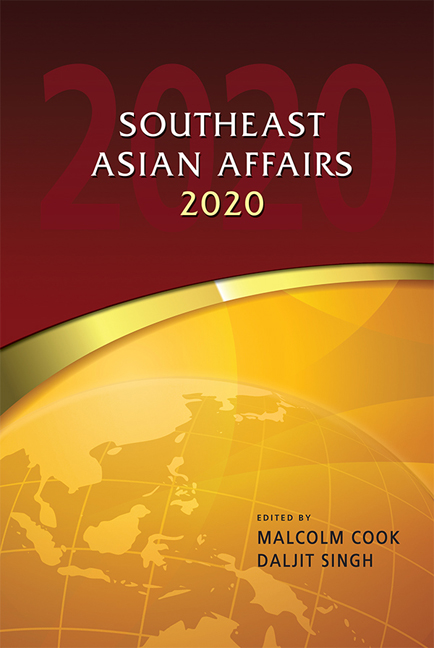Succession Politics and Authoritarian Resilience in Vietnam
Published online by Cambridge University Press: 24 November 2020
Summary
On his seventy-fifth birthday, on 14 April 2019, Nguyen Phu Trong visited the southern province of Kien Giang, a practice he had adopted since being re-elected as secretary general of the Vietnamese Communist Party (VCP) in 2016. This time it did not go well; it was rumoured that Trong suffered a stroke, and he was subjected to a lengthy hospital stay. He appeared fragile during his first public appearance a month later, and in June he had to delegate National Assembly (NA) chairwoman Nguyen Thi Kim Ngan to visit China on his behalf. There was only limited coverage of these events in the tightly controlled Vietnamese media, as they tried to downplay the significance of Trong's deteriorating health.
In 2021 the VCP will hold its 13th National Congress, at which Trong—who will be seventy-seven by then—is expected to step down. However, this is only a high possibility, not a certainty. When re-elected in 2016, Trong hinted that he would retire in the middle of his term to make room for younger leaders. In the two years following his re-election, however, he consolidated power to become the most powerful figure in Vietnamese politics in decades. The sudden health incident will have likely put an end to any wish of his to remain in power for longer. What is more important however is whether Trong's illness has any implications for Vietnamese succession politics. As the head of both the party and the state, Trong's preference will weigh heavily in the candidate selection process for the hot seat in 2021. The tradition in Vietnamese politics is for party elders to have strong opinions over who will assume their posts (or even who should step down). The rise and fall of Secretary General Le Kha Phieu vividly illustrated that. Phieu was promoted to the party's supreme position in 1997 when he gained the support of both Le Duc Anh and Do Muoi after a long tug of war between two camps. He was nevertheless dethroned four years later when the party elders opposed his re-election.
Tran Quoc Vuong, the executive secretary of the party's Secretariat—the fourth most powerful member of the party—was considered Trong's right-hand man and his favoured candidate for the top post.
- Type
- Chapter
- Information
- Southeast Asian Affairs 2020 , pp. 411 - 426Publisher: ISEAS–Yusof Ishak InstitutePrint publication year: 2020

